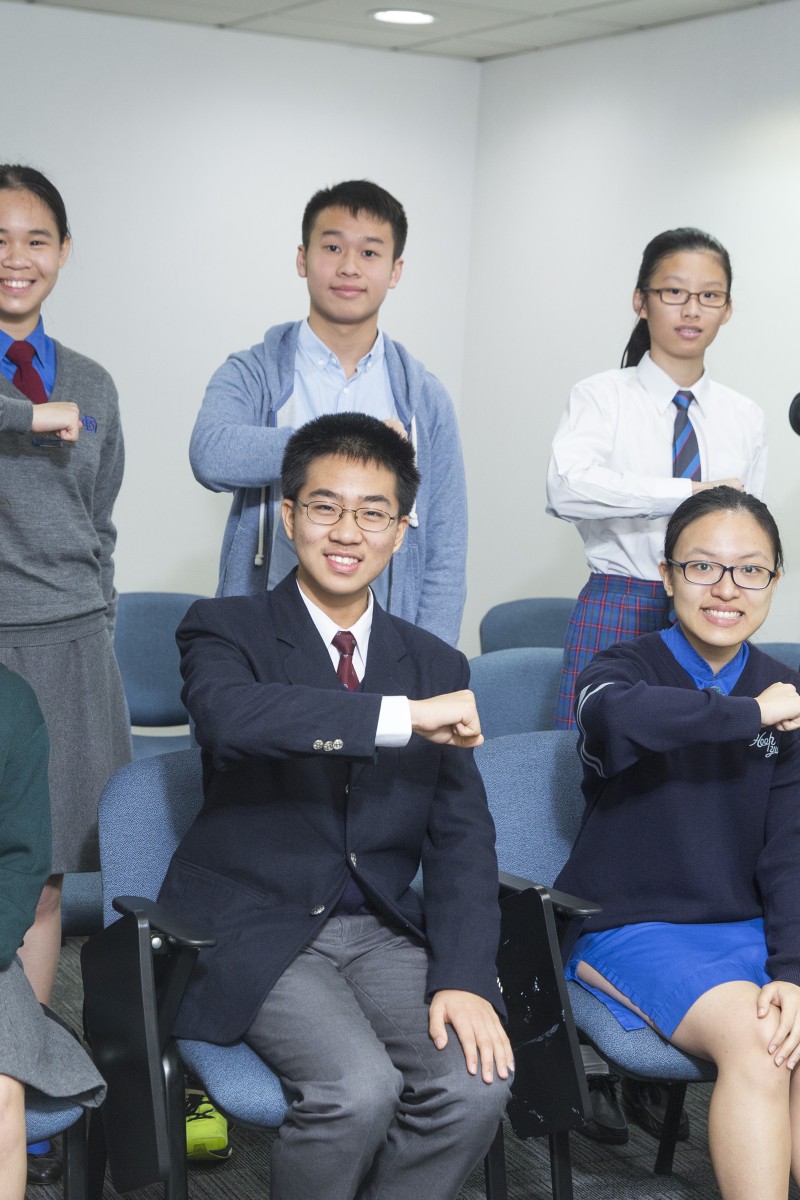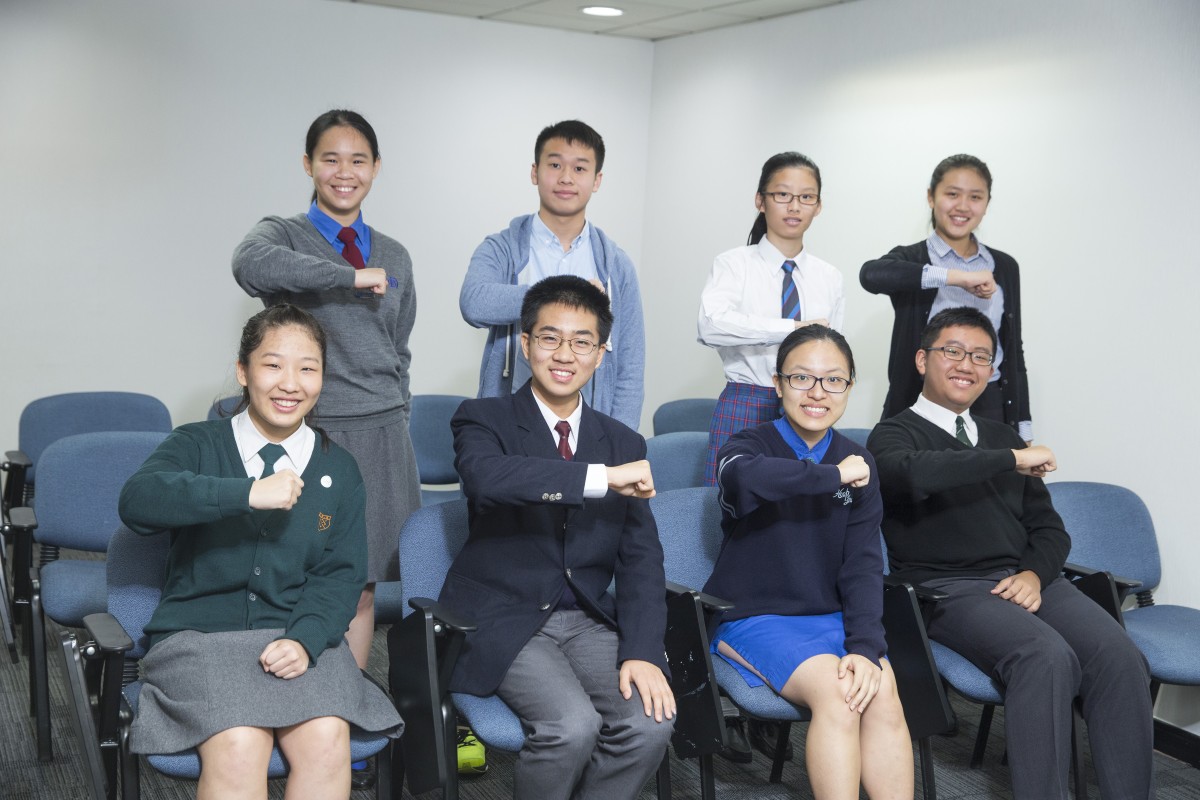
Student of the Year Linguist category finalists aren’t just eloquent speakers, they have a solid frame of reference to draw on, and a real love of languages
 Candidates from the SOTY Linguist category (Putonghua) are all passionate about language, but they also know how it relates to the wider world around them and can explain how that affects their lives.
Candidates from the SOTY Linguist category (Putonghua) are all passionate about language, but they also know how it relates to the wider world around them and can explain how that affects their lives.The scientific study of language can give you an insight into many aspects of human behaviour, so it’s no surprise that so many students aspire to be great linguists. Particularly in a city that is as competitive and as culturally diverse as Hong Kong, mastering languages is a serious talent, and the finely honed skills of Hong Kong’s most articulate were put to the test at the final judging for the Student of the Year Linguist category.
Some standard expectations were that candidates should be capable of giving a good presentation and be able to answer questions on it, demonstrating that they can think on their feet.
But one of the judges, Associate Professor at City University’s Department of Linguistics and Translation, Dr Peppina Lee Po-lun says that they don’t have the same standards or expectations for Cantonese, English and Putonghua.
“Canto is typically the native language of these students, and in that sense making a speech in your native language is both easy and hard,” she explains. “As we have higher expectations when it comes to Cantonese, we have tougher requirements for the content of the speech. We expect depth and an explanation of how language affects your life; not just quotes from other people.”
She was also impressed by the high level of English and Putonghua the candidates demonstrated. “Their Putonghua was near native. No problems with pronunciation, grammar or word choice,” she said. “When it came to English, we had to be aware of ‘Chinglish’ in their speeches and answers. I was still impressed by their depth, though. They are exceptional students.”
But speaking well was not the only thing the judges looked at. “A background in debate is not necessarily an advantage, as you can’t be persuasive without accurate knowledge and good content. Reading complements debate,” said Lee.
Lee advises prospective candidates to draw from their own experiences. “A successful speech is not a mechanical object put together with different quotes,” she says “It’s their own thing. The Q&A is where we check if what was said affected their lives.”
Another judge, and professor and chairman of the department of Linguistics and Modern Languages at Chinese University, Thomas Lee Hun-tak, describes the differences between the typical candidates and the elite. “The top few are very able in their responses. They can show their love of language and their ability to understand and use it in a complex way.”
The depth of their ability is something that sets them apart. He expands on this by adding that students need to have a solid frame of reference to write a good speech. “A successful speech is not just self explanatory; it needs to refer to the classics. These links make a speech more appealing.
“For example, in the Putonghua category some students spoke with a classical flare that showed not just the depth of their knowledge but their ability to express their understanding of the beauty of language,” he added.
His final advice is also a critique of modern students. “Read more. Students that read are the exceptional ones. Absorb what you learn from books and apply it to your lives. That’s where creativity comes from.”
And he is quick to add that school books don’t count. As he explains, “Textbooks now lack actual text. It’s short text with fill in the blanks like a power point. Not reading means you don’t understand the context of a word and the concept it explains. For example, Martin Luther King’s ‘I have a dream’ speech is often referenced by students. But how many of them know the origin of the phrase ‘Five score years ago’ in the speech? Would they know it’s a reference to Lincoln’s Gettysburg Address?”
